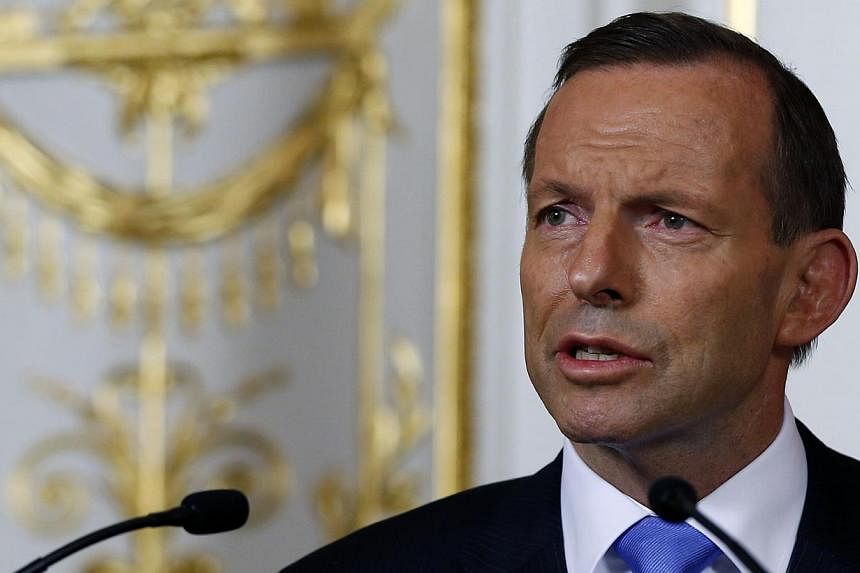SYDNEY (AFP) - Australia's first budget under conservative Prime Minister Tony Abbott to be released on Tuesday promises to end the "age of entitlement", with spending cuts and tax rises expected as the nation strives to rein in its deficit.
After 22 years of continuous economic expansion, Australia is confronting growth which remains stubbornly below trend and unemployment rates of around 6.0 per cent.
At the same time, Australia's budget deficit for the 2013-14 financial year is forecast to have ballooned to A$47 billion (S$55 billion), with fiscal deficits projected through to 2016-17.
The government argues that without change, the budget will be in deficit for the next decade and Mr Abbott has called on all Australians to help "chip away at the debt and deficits".
Eight months after his election victory, his government is expected to lift income tax for high earners, reintroduce an excise on petrol and make cuts to spending.
Treasurer Joe Hockey told The Weekend Australian on Saturday that industry assistance - such as tax breaks or financial incentives - was also on the chopping block.
"The fact is that when I said there's going to be an end to the age of entitlement, everyone has to contribute," Mr Hockey told the paper.
"Business will benefit out of a stronger economy and a leaner public sector that will come out of this budget."
He has suggested a "new agenda" in taxation in which those who have the capacity to pay, pay their fair share, including a tax levy on high earners to help pay down the deficit.
Mr Jakob Madsen, an economics professor at Melbourne's Monash University said the government was right to tackle the deficit.
"They should definitely do something about it, I agree, because why should future generations pay for us? But definitely it's not a crisis at all," he told AFP.
COSTS OF AN AGEING POPULATION
Mr Madsen said the ratio of government debt to GDP was 35 per cent, a level it reached during the 1991-92 recession, but far below the more than 100 per cent level of countries in the grip of a debt crisis.
"The deficit is 3-4 per cent of GDP. It's not crisis level, but it's a big deficit when the economy is not in a recession," he added.
Australian government revenues have dropped dramatically in recent years, in part due to income tax cuts introduced in 2007 during the boom years, and this needed to be corrected, Madsen said.
Meanwhile, expenditure on old-age pensions was growing as more baby boomers entered retirement, meaning that a proposed lift in the pension entitlement age from 65 to 70 needed to happen sooner rather than later, he said.
Mr Andrew Hanlan, a senior economist at Westpac, said he was not expecting to see a sharp tightening fiscal policy in the near term.
But he said budgets would face "more fiscal pressure as there is an ageing population, the main issue really being from the cost of health".
"Certainly it's important that from a policy point of view that the budget's headings are appropriate - so to have an intractable deficit situation as your population is ageing raises some issues," he told AFP.
In its Asia Pacific weekly note, TD Securities said while Australia's debt figures were small when compared internationally, persistent deficits after a decade of consecutive mining booms were cause for concern.
"But we don't expect real reform just yet, only politically palatable tweaks," it said.

